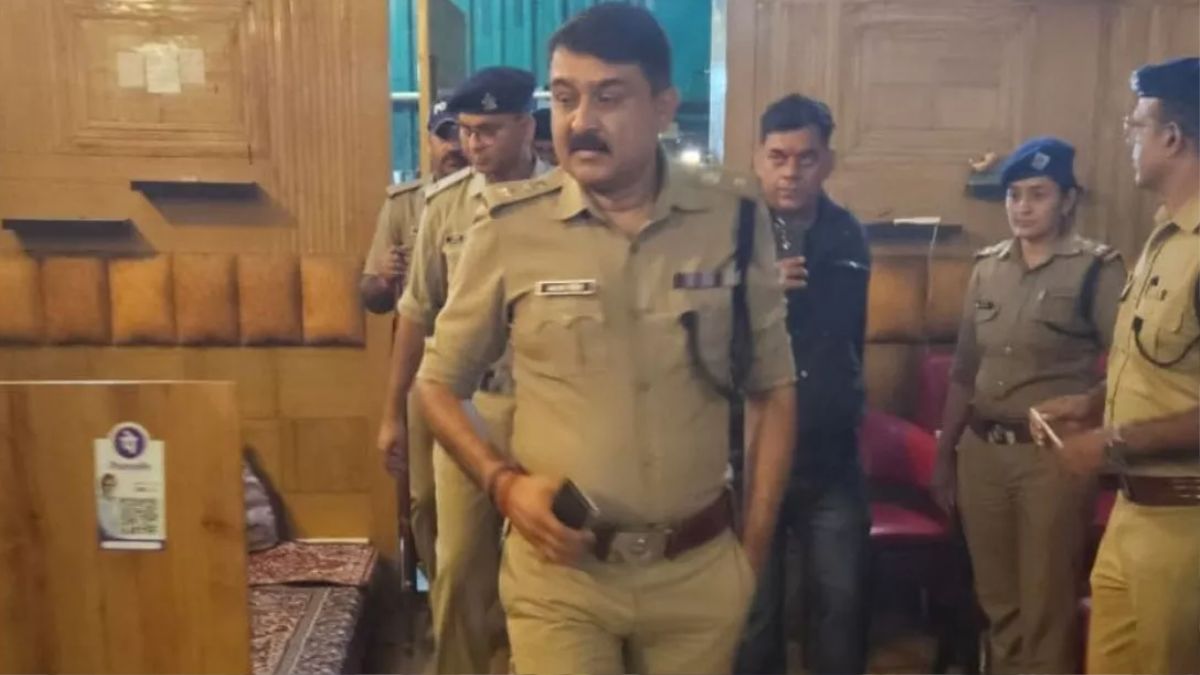The Uttarakhand police department, under the direction of Chief Minister Pushkar Singh Dhami, launched a comprehensive campaign targeting food establishments to improve hygiene and safety standards. This initiative follows recent incidents of spitting in food, prompting concerns about public health and safety. The campaign, focusing on cleanliness, CCTV installation, and employee verification, highlights the state government’s commitment to tackling these issues.
Uttarakhand’s Crackdown on Food Hygiene: A Multi-pronged Approach
Inspections and Enforcement
The Dehradun police, led by SSP Ajay Singh, conducted raids across the city, inspecting hotels, restaurants, and dhabas. The inspections extended beyond simple visual checks, with the SSP personally examining kitchen arrangements in various establishments. The campaign’s scope covered all police station areas, focusing on verifying the presence and functionality of CCTV cameras in kitchens, and evaluating overall cleanliness standards. Establishments with exemplary hygiene were rewarded with flowers, a positive reinforcement strategy aimed at promoting voluntary compliance. The thorough inspections resulted in action against 135 establishments for unsanitary conditions and 127 for lack of employee verification, showcasing the enforcement aspect of the campaign. This widespread operation underscores a dedicated effort to address concerns about food safety and hygiene within the state’s culinary sector. The police department actively engaged with businesses, focusing not just on punishment, but also on collaborative improvement through recognition and incentivization.
The Role of CCTV Surveillance
A key component of the initiative involves mandating CCTV cameras in food establishment kitchens. The police actively encouraged and, in certain cases, required, the installation of these security systems. The surveillance aspect intends not only to deter potential acts of contamination, like the reported spitting incidents, but also improve accountability and oversight within these businesses. The strategic inclusion of CCTV cameras showcases a modern approach to food safety, moving beyond traditional inspection models to employ technological aids in maintaining hygiene. Data gathered through CCTV surveillance would also aid in investigating future incidents, allowing for quicker and more effective responses to potential violations. The widespread deployment of this technology is a testament to the government’s commitment to tackling issues in the long term, rather than employing merely reactive measures.
Addressing the Root Causes: Employee Verification and Awareness
Beyond immediate cleanliness concerns, the campaign highlighted the importance of employee verification. Over 100 establishments faced penalties due to the failure to adequately verify their employees. This focus underscores the need for stringent background checks to ensure the safety and security of food establishments and customers. The stringent approach to worker verification reflects a deeper concern about the overall integrity and safety of the food preparation processes, with worker checks intended to eliminate the potential for malicious actors. This initiative is an integral aspect of bolstering food safety beyond surface-level cleanliness by carefully considering potential risks emanating from personnel within the businesses. It provides for increased public health security in an important area of public life.
State-wide Response and Future Implications
This Dehradun campaign is part of a broader statewide effort driven by Chief Minister Dhami’s instructions. The Director General of Police issued directives to all districts and railway police to address similar incidents, indicating a commitment to a comprehensive statewide response to address hygiene concerns. The initiative showcases a cohesive governmental approach. The state government is employing a proactive rather than solely reactive strategy, tackling the root causes of food safety concerns. The measures emphasize not only punishment for infractions, but also positive reinforcement and a broader drive towards awareness to maintain higher standards. This integrated strategy promises lasting positive impacts on hygiene practices and overall food safety.
Take Away Points:
- The Uttarakhand government has launched a multifaceted initiative to enhance food hygiene and safety standards.
- Police inspections focused on cleanliness, CCTV installation, and employee verification across various food establishments.
- Positive reinforcement along with penalties aim to encourage improved standards.
- The campaign highlights a comprehensive, proactive, and statewide response to address food safety concerns.




